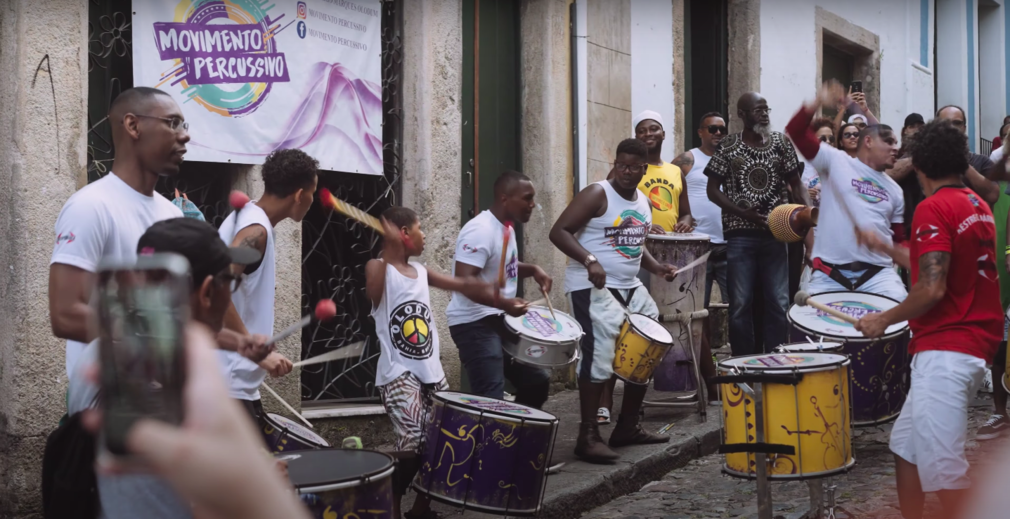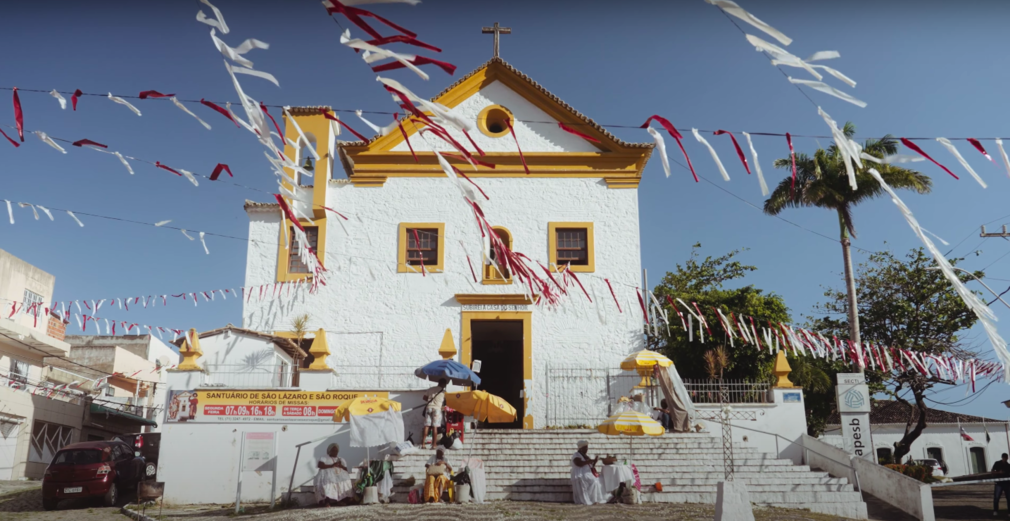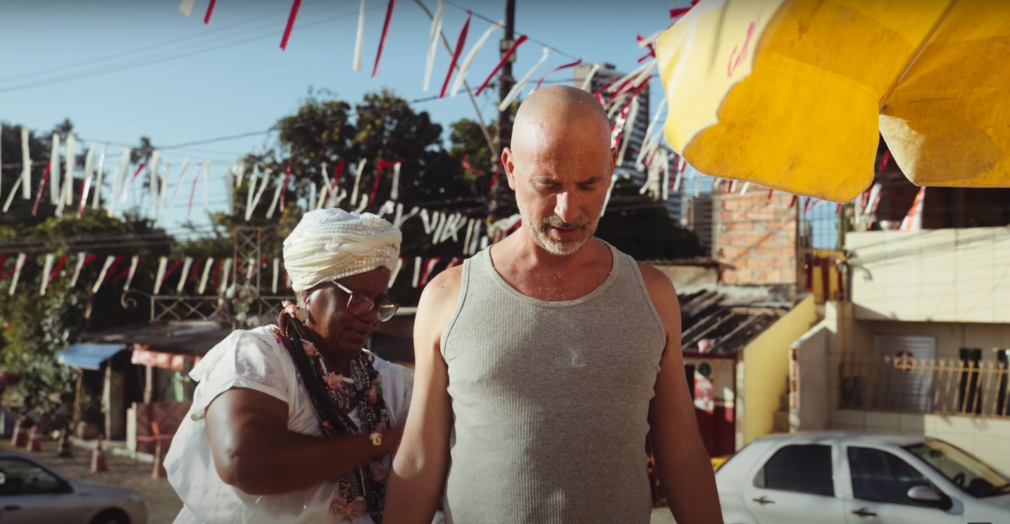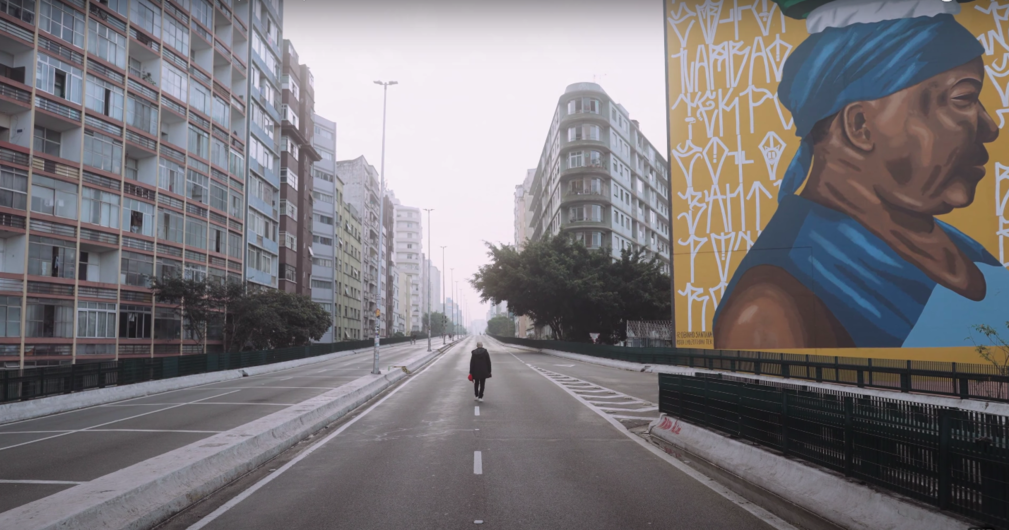PAM presents a new film: Lucas Santtana, paradise (it’s already here)
In an emotional trip to the artist’s homeland, Brazilian singer Lucas Santtana explores the history of carnival’s Bloco Afros, the condition of Brazilian Black and indigenous population and the region’s candomblé spiritual fusion on the eve of the country’s historic elections.
Directed by Vladimir Cagnolari and produced by Oléo & No Format, Lucas Santtana, paradise (it’s already here) is an exploration of the Brazilian singer’s homeland, through the lens of his most recent album O Paraíso. The 10 track project released on No Format! asks listeners to rethink the notion of paradise by taking notice of the natural beauty that’s around us and which is slowly disappearing. Now a resident of Montpellier, Lucas makes this trip on the eve of Brazil’s historic presidential election. During president Jair Bolsonaro’s mandate, which lasted from January 2019 to December 2022, the former military captain’s conservative legislation cracked down on social aid and reduced environmental protections. The backdrop to the film, the election is a flashpoint for democracy, environmentalism, nationalism and how we choose to preserve and protect our paradise on Earth.

Lucas Santtana was born in Salvador, the capital of the northeastern state of Bahia. A beautiful coastal town, known worldwide for its legendary carnival celebrations, it is also a place with a long and complicated history. Built on the back of slaves brought over by Portuguese colonists, the realities of this legacy echo into today; in politics, in music and in conversation. As we follow Lucas around his home state, the conversation takes many forms. Sometimes it is written beneath the sprawling skyscrapers towering over homeless encampments with graffiti reading, “Bolsonaro killed my daughter”. Others it is between two old friends, as with Quito Ribeiro, the only black student at Lucas’ school as a child. As the two wander into the Pelourinho neighborhood, a forbidden yet alluring place for Lucas and Quito as children, due to its primarily black population, now a tourist hub for its rumbling carnival music, the two see how much has changed.
Though some things haven’t. Like the Castro Alves theater, a beautiful winding building where Lucas’ mother taught dance, and a 12 year old Santtana saw Fafa de Belem play flute for the first time. Or as Lucas puts it, the realization that it’s the “sounds of Africa that are at the heart of Bahian identity”. A sentiment that is nowhere more evident than with Alberto Pita and the Cortejo Afro, a carnival collective pregnant with song and symbol. Carrying tradition onward and preserving candomblé knowledge in book and on garb, Alberto Pita likes to say that his work is a “meeting of illiterates”. Those who cannot read the complex iconography of his blocos’ past, and those who didn’t receive a “formal” education to read and write.

Alberto Pita makes a clever commentary on our brash judgements, our hierarchy of values. Something Lucas does in his music, reminding us that paradise is not in a faraway ether, awaiting us in some esoteric afterlife. Rather, it is here on Earth. It is in the trees and under the concrete. Lucas also makes reference to Ailton Krenak, an inspiration for this conscious expansion. A political activist and voice for the indigenous people of Brazil, Krenak said in his book, Life is not useful, “Life is fruition, it’s a dance, but it’s a cosmic dance, and we want to reduce it to a ridiculous and utilitarian choreography.” Who is savage and who is saintly? What is progress and what is folly?
From the city we travel by boat to Ilha da Maré, the “blackest community” in Salvador, says Eliette Paraguassu, a local activist. It’s a place where escaped slaves, or maroons, lived and formed communities called quilombos. Today, the island is home to many petrochemical plants. While acetone, butane and a variety of other industrial waste leaks into the communities’ water, the residents receive no profit, nor public services from their presence. For those who live from tourism, fishing, agriculture and artisanal crafts, pollution is a sanitary and economic catastrophe. But not only. Eliette Paraguassu, who also runs for local representative, makes the rounds of the island passing out flyers and garnering votes. She speaks of the high rates of cancer in the local population, the destruction of the natural resources, but also the spiritual harm. “The mangrove is a woman,” Paraguassu explains, “who protects and heals and carries the history and leads the future.” Here Lucas makes a chilling point; “the first victims of consumer society are those who consume the least.”
In a final stop Lucas travels to the church of Sao Lazaro, a catholic patron saint, but also a candomblé figure named Obaluaie. Obaluaie is the son of the goddess of the sea, a force of nature, like the orishas of Africa. Candomblé practices are a syncretism between traditional religions of West Africa and Roman Catholic and Christian practices of European colonists. As Lucas says of Obaluaie, “he can heal, but he can also kill.” A fitting metaphor for the natural order and the world around us. Or, on a lighter note, “no leaf no life”. In front of a bright yellow cathedral, Lucas is blessed with the orisha’s favorite snack, popcorn.
In the end Lucas returns back to his home in Montpellier to await the results of the election. Lula defeats Bolsonaro with 50.9% of the votes. A “win for democracy” announces the radio presenter from Lucas’ apartment. It’s a sigh of relief. A victory, for now. Until then, as Lucas sings on “La Biosphère”; “Don’t dry up your fountain, listen to the shamans…nature, our only paradise.”
O Paraíso by Lucas Santtana is available here via Nø Format!



